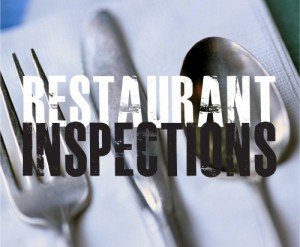
The Prince William Health District inspected Afghan Famous Kabob, located at 14702 Lee Highway, Gainesville, and found 25 violations of the health code, including temperature and sanitary issues.
The inspector cited the restaurant July 26 for six priority violations, six priority foundation violations and 13 core violations.
According to the Health District report, these violations include:
Priority: Employees and conditional employees are not aware of the reporting procedures concerning information about their health and activities if they are suspected of causing, or being exposed to a confirmed disease outbreak caused by Typhoid fever (caused by Salmonella Typhi), Salmonella (nontyphodial), Shigella spp., Shiga toxin-producing Escherichia coli, Hepatitis A virus or Norovirus.
Priority (Corrected During Inspection): A food employee failed to wash their hands before engaging in food preparation, after touching their face.
Priority (Corrected During Inspection): In house cooked spinach and lamb improperly cooled in the walk in cooler is unsound or adulterated.
Priority (Corrected During Inspection): Observed in house cooked spinach and lamb not being adequately cooled to prevent the growth of harmful bacteria.
Priority (Corrected During Inspection): In house cooked spinach hot holding at improper temperatures.
Priority: Observed food stored in white garbage bags in the walk in cooler and display cooler. Observed in house yogurt sauce stored in black plastic Sterilite container in the walk in cooler.
Priority Foundation: Employees are not aware of or are not practicing proper methods to rapidly cool time/temperature for safety (TCS) food.
Priority Foundation: The person in charge (PIC) is not maintaining daily oversight of the employees routine monitoring of food temperatures of time/temperture control for safety (TCS) food temperatures during hot and cold holding.
Priority Foundation: The ambient (air/water) temperature measuring device (degrees F) located on the exterior of the prep cooler is broken.
Priority Foundation: There is no properly working test kit provided in the facility for monitoring the concentration of the Chlorine chemical sanitizing solutions.
Priority Foundation: The following equipment food-contact surfaces were observed soiled to sight and touch: microwave.
Priority Foundation: Observed significant accumulation of food grease/debris on pots and pans.
Core Repeat (Corrected During Inspection): Observed uncovered beverage container in the food preparation area.
Core Repeat (Corrected During Inspection): Observed wet wiping cloths on the counters and inside the prep cooler.
Core (Corrected During Inspection): Observed rice stored in large pot in the walk in cooler floor.
Core (Corrected During Inspection): Observed raw chicken thawing in a container of water in the kitchen.
Core (Corrected During Inspection): The methods used for cooling cut lettuce, sliced tomatoes and in house cooked lamb and spinach are not adequate.
Core: Observed missing kickplate on the 1 door upright cooler.
Core: Observed broken handle on the left hand side door of the prep cooler.
Core: Observed rusted base of the prep cooler and cracked/broken base of the 1 door upright freezer.
Core: Observed ice accumulation on the top of the upright freezer.
Core: The cutting board(s) along the prep cooler are heavily scratched and scored. The food contact surface is no longer easily cleaned and sanitized due to condition.
Core: Observed significant accumulation of food debris and grease on the cooking elements in the back kitchen area.
Core: Observed food debris on the base of the upright feezer and display cooler.
Core: Single use spoons, forks and knives in the dining area are stored with food contact surface pointed outward, unprotected from contamination.
Click here to search for detailed information about this restaurant.
“Restaurant inspections are normally scheduled for one to four inspections per year, depending on the complexity of the menu, how much food is made from raw products, and how much is made in advance rather than cooked-to-order,” the agency states on their website.
When inspectors observe violations during a routine inspection, they are detailed in a report and classified as either critical (posing a direct or immediate threat to consumers) or non-critical (a failure of cleaning or maintenance), they said.
These inspections are considered by the Health District as a snapshot of a specific day of operation.
According to the agency, “Ideally, an operation would have no critical violations, or none which are not corrected immediately and not repeated. In our experience, it is unrealistic to expect that a complex, full-service food operation can routinely avoid any violations.”
Support Bristow Beat - Donate Today!